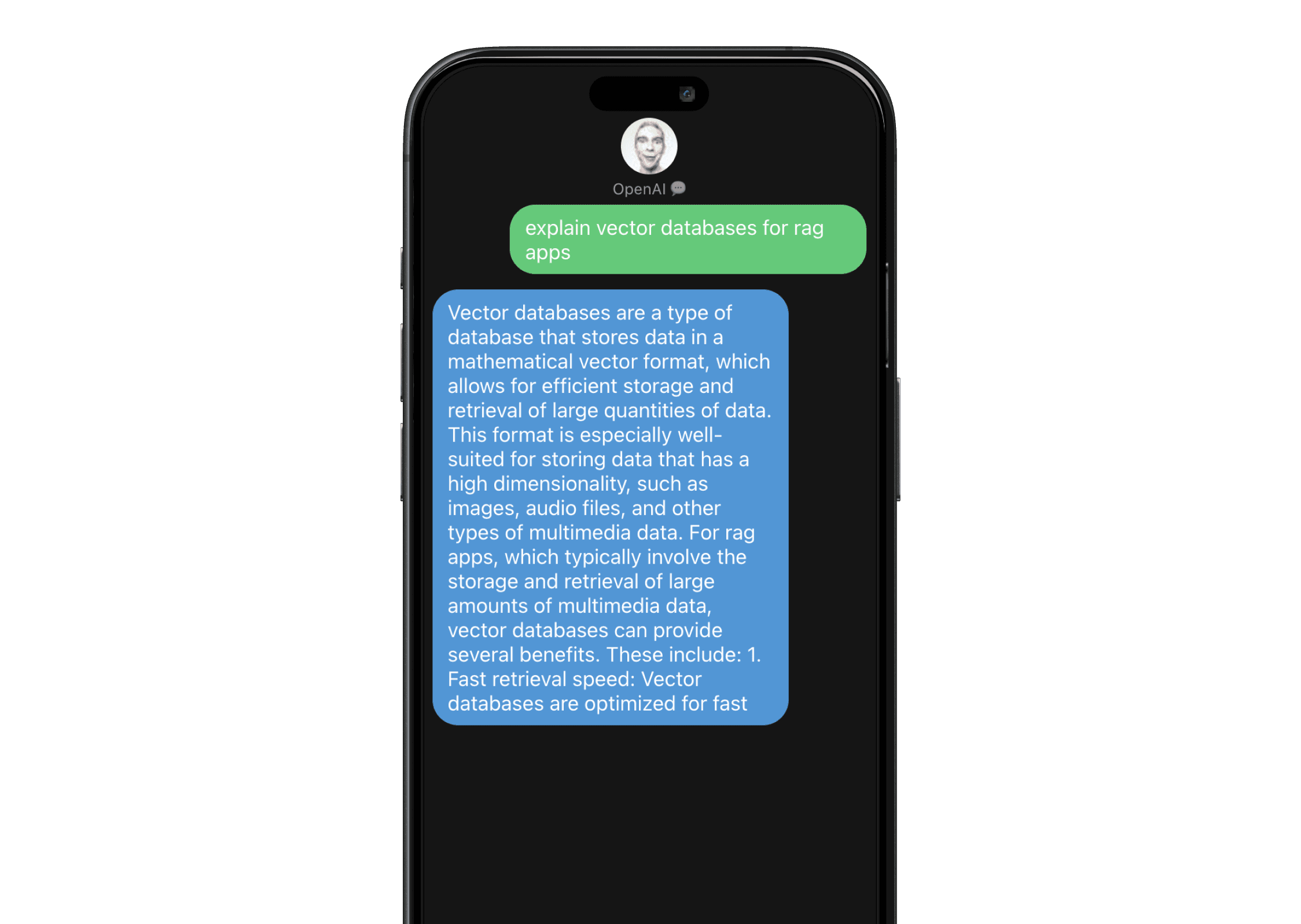Revolutionizing Chat Experiences with OpenAI iMessage App
Introduction
In an era where instant communication is paramount, the OpenAI iMessage App stands out by incorporating OpenAI’s advanced AI into an intuitive chat interface. This project is not just about messaging; it’s about creating meaningful and engaging interactions with AI, leveraging React, Node.js, and Axios for a smooth, real-time experience.
React, Node.js, and Axios Integration
- Robust Backend: Utilizes Node.js for the server-side logic, handling API requests efficiently and securely.
- Seamless API Communication: Axios is employed for making HTTP requests to OpenAI’s API, ensuring quick and reliable data exchange.
- Dynamic Frontend: The app is built with React, allowing for a responsive and dynamic user interface that updates in real-time as users interact with AI.
Engaging with OpenAI’s API
- Instant AI Responses: Integrates OpenAI’s powerful API to provide users with instant, intelligent responses, making conversations more engaging and informative.
- User Intent Recognition: Employs sophisticated algorithms to understand user queries better and deliver accurate and contextually relevant responses.
User Interface and Experience
- Intuitive Chat Interface: Features a clean and user-friendly design, making it easy for users to start chatting with AI without any learning curve.
- Responsive Design: The app’s layout adjusts flawlessly across different devices, offering a consistent experience whether on desktop or mobile.
Performance and Scalability
- Optimized Performance: Ensures smooth and fast interactions by optimizing the frontend and backend for speed and efficiency.
- Scalable Architecture: Designed to handle a growing number of users and conversations, the app can scale up as needed to meet demand.
🤖 Happy chatting!
The OpenAI iMessage App using React, Node.js, and Axios is a testament to how modern web technologies can create innovative and engaging platforms. This app not only brings AI-powered conversations into the mainstream but also provides a template for future developments in real-time, interactive applications.
